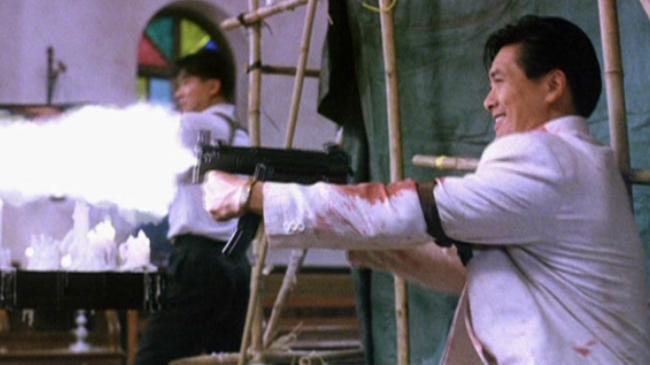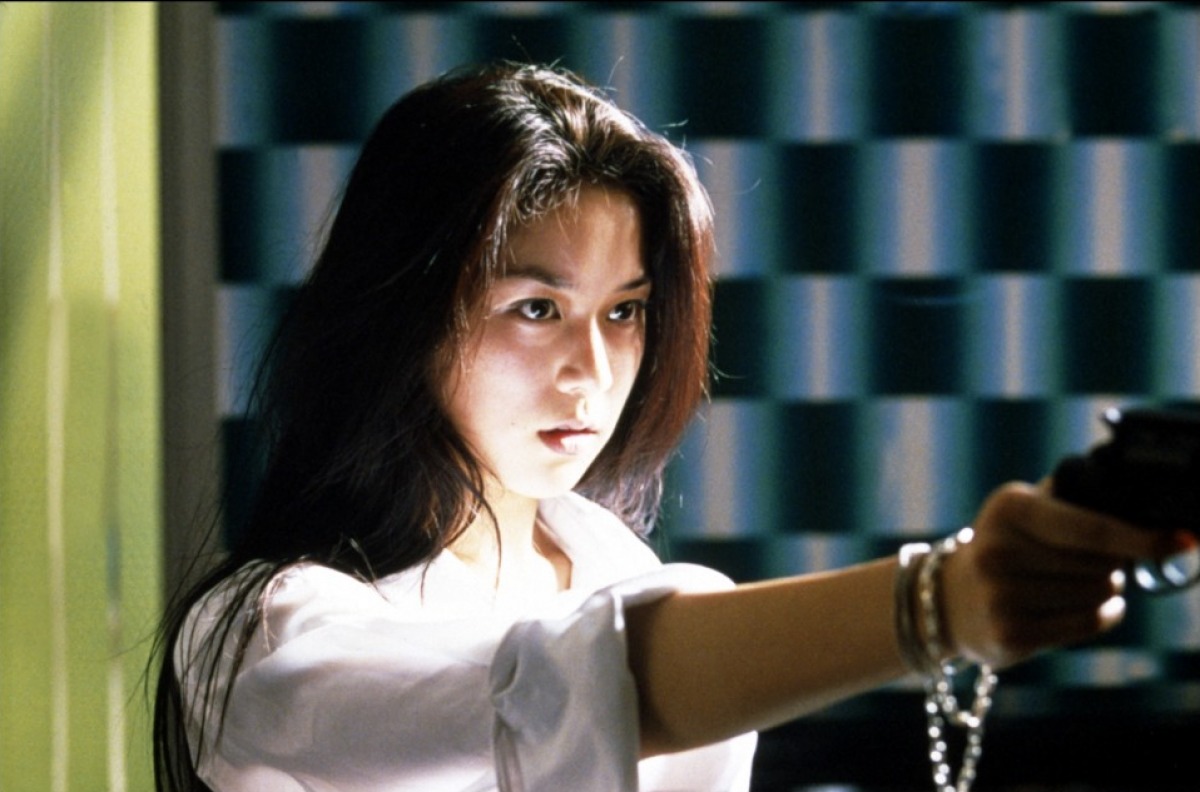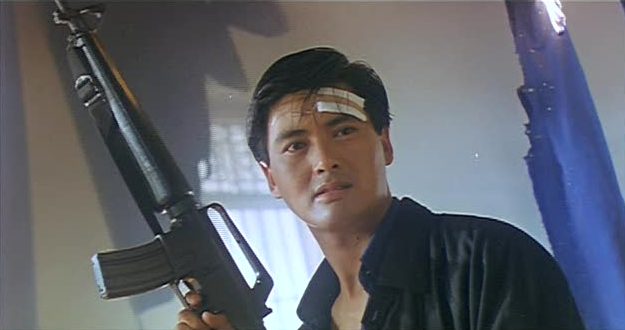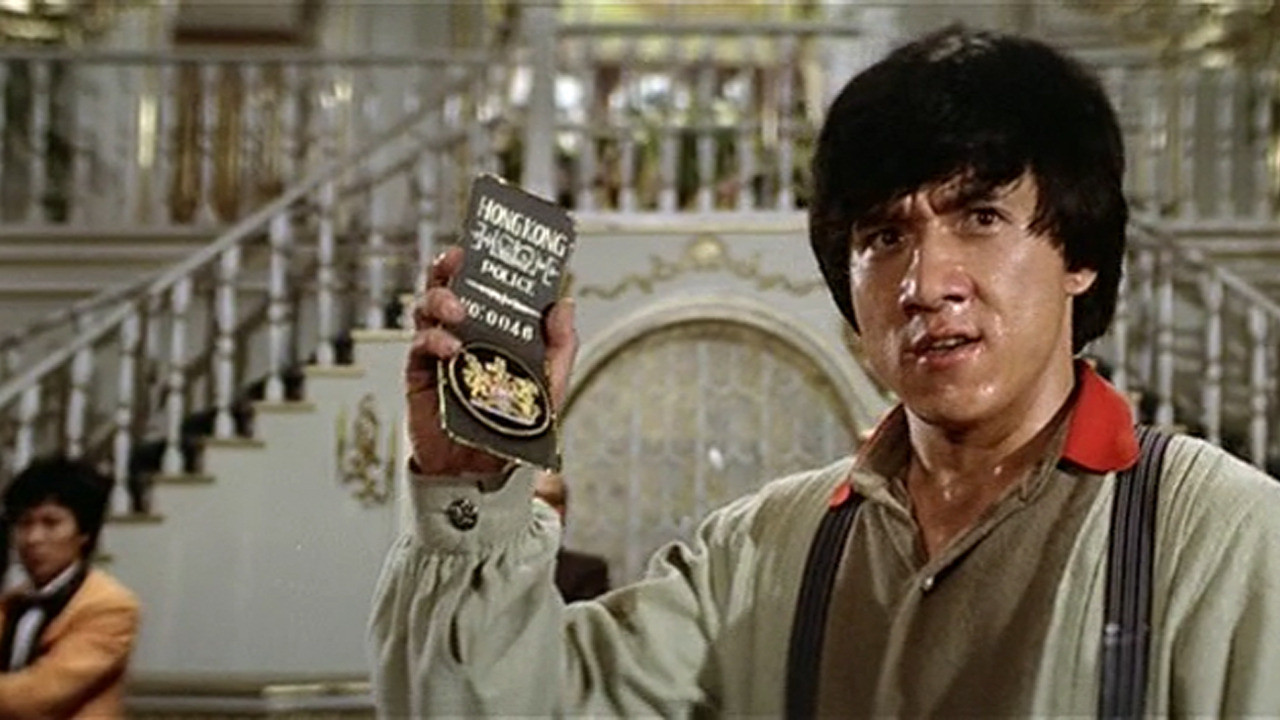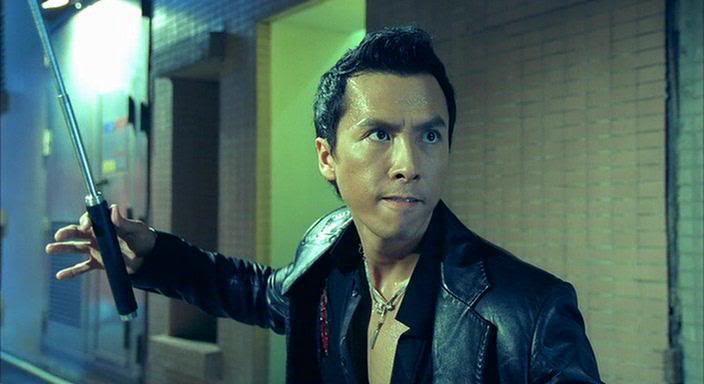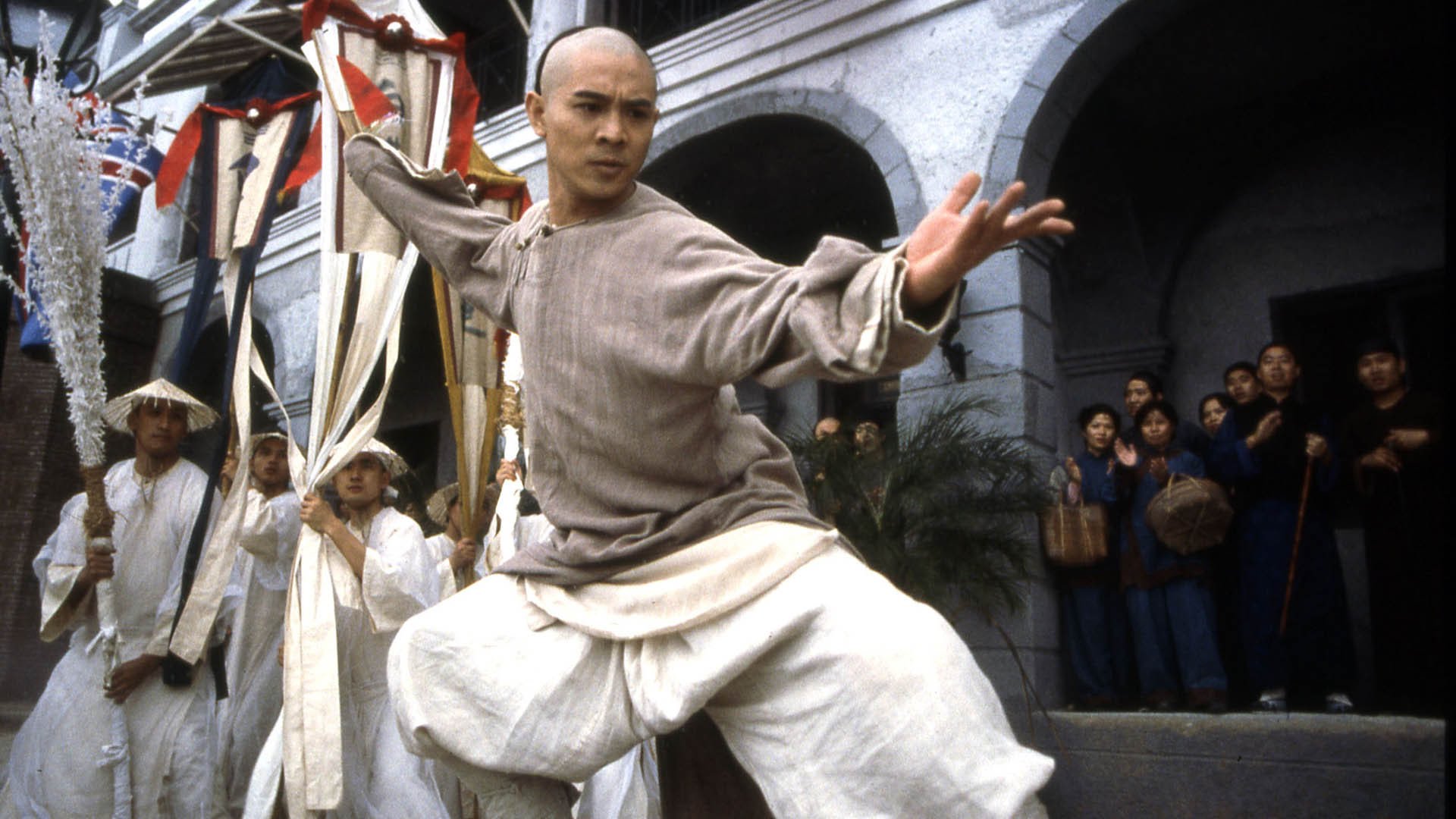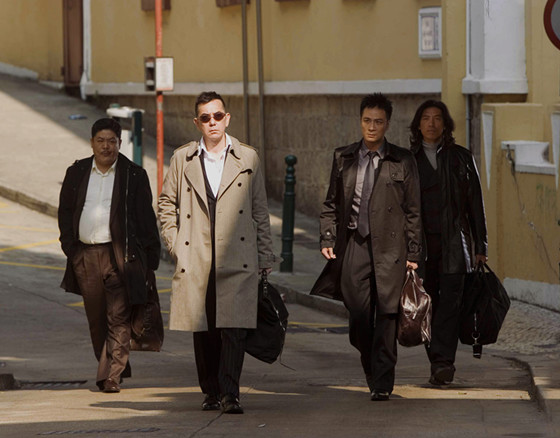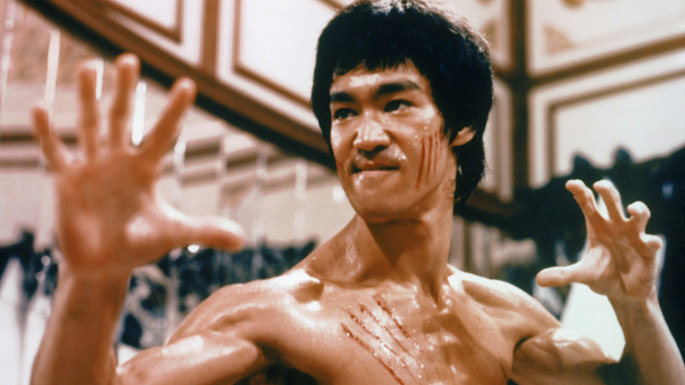As much as the Japanese excel in family dramas and horror movies, and the Korean in thrillers and crime ones, the film industry of Hong Kong accordingly shines in action films. Starting in the early 60s with productions shot by Shaw Brothers, continuing with Bruce Lee and Jackie Chan, kung fu was omnipresent in the action genre.
However, as the years passed, fresh artists entered the industry, with the likes of Johnnie To, Tsui Hark and John Woo who focused chiefly on gun-action instead of martial arts. This additionally introduced a different set of protagonists, namely among them the sublime Chow Yun-fat. Nevertheless, the flag of martial arts was never dropped, with actors like Jet Li, Andy Law and Donnie Yen still coming through up to this day.
No matter where the fighting came from, all of the above are connected through the primary characteristic of the genre: the direction, script and acting exist almost solely service the action scenes. In that aspect, this article’s critique will focus on the quality of the latter, instead of the aforementioned factors. Here is a list with a few of the best samples of Hong Kong action.
1. Time and Tide (Tsui Hark, 2000)
Tsui Hark returned to Hong Kong after a largely disappointing attempt in Hollywood, where both of his films with Jean Claude Van Damme (“Double Team” and “Knock Off”) plummeted commercially and artistically. With “Time and Tide”, he proved that he had not lost his touch.
Tyler, who works as a bartender, after a night of excessive drinking, ends up sleeping with an equally intoxicated lesbian cop, Ah Jo. After a while, Ah Jo’s girlfriend confronts Tyler, informing him that the girl is pregnant and has resigned from the police force. Subsequently, Tyler decides to work for his uncle, Ji, who owns a bodyguard firm, in order to provide for Ah Jo.
During one of his missions he comes across Jack and his spouse, Ah Hui, whose father is the object of the team’s protection. Jack helps Tyler fulfill his mission and the two of them become friends. However, a bit later a team of mercenaries appears, of which Jack used to be a member. Miguel, the vice leader, offers him his former position, with the condition of killing his father-in-law. He denies and a murderous manhunt initiates that also involves Tyler, who tries to assist Jack and his wife.
The action is elaborate and almost nonstop, with Hung Yan Yan, the action choreographer and stuntman, doing an exceptional job on it. The protagonists, Nicholas Tse as Tyler and Wu Bai as Jack, are particularly persuasive in their roles. The former represents the humorous elements Hark had incorporated in the film, and the latter represents the archetype of the laconic “superhero”, who does not say much and just proceeds on eliminating hordes of his enemies.
The scene in the residential block and the final ones are the utmost impressive in this film.
2. A Better Tomorrow (John Woo, 1986)
This particular title is one of the foremost significant films of this industry, primarily for getting off the ground the careers of two of its most distinguished members, John Woo and Chow Yun-fat, and reinstating Lung Ti, whose career was in shambles after his departure from the Shaw Brothers. Also of note is the fact that it was one of the initial films of Tsui Hark’s newly created production company, and he insisted in the presence of the aforementioned.
The script revolves around the relationship of Tse Ho, a top triad member, with his adopted brother from the organization, Mark “Gor” Lee and his actual brother, Tse Kit, who has just graduated from the Police Academy.
Being evidently low budget, the film nevertheless entails a plethora of impressive shooting scenes, the majority of whom additionally encompass a vivid sense of humor, chiefly presented by Chow Yun-fat, who plays Lee. Despite the fact that the protagonist is Lung Ti as Ho, who definitely shows his talent, the aforementioned is the one who upstages the rest of the cast, with his smooth, humorous and enchanting style of acting.
“A Better Tomorrow” was a colossal box office success, additionally netting a plethora of awards from all over Asia. Furthermore, it was the one that established the gangster subgenre in Hong Kong.
3. Project A (Jackie Chan, 1983)
Dragon Ma is a member of the coast guard in Hong Kong, whose purpose is to neutralize the pirates’ activity in the area, which infest the seas. During preparations for a large expedition for this cause, the pirates succeed in detonating the majority of the coast guard’s ships, thus canceling the entire operation. Subsequently, the coast guard is dismantled and their members are forced to join the police, who are their rivals up to that point. Major Tzu is assigned the leadership of the project.
A bit later, Dragon picks up information from a former friend of his, Fey, a minor crook, concerning the treachery that aborted the expedition against the pirates and the two of them proceed to solve the mystery, in order to reinstate the coast guard.
All of the “Three Brothers”, Jackie Chan, Sammo Hung (who also co-directed), and Yuen Biao star in “Project A”. The inclusion of Dick Wei, as the leader of the pirates, makes obvious that the crème de la crème of Hong Kong action was present here.
Every action scene in “Project A” is sublime; beginning with the initial scene in the restaurant and the fight between the coast guard and the police, the one in the private club, the unrelenting chases through the streets of Hong Kong and the final battle are scenes worth watching again and again. Jackie Chan exhibited his best performance within the excellent action choreography.
“Project A” was an enormous success in Hong Kong and Southeast Asia, with the emperor of Japan insisting that Chan shoot a second part, a request that was eventually met.
Finally, this was the first time in a Jackie Chan movie that the shooting of the various stunts was shown in the conclusion of the film, a practice that accompanied him, from then on, in all of his movies.
4. SPL (Wilson Yip, 2005)
The collaboration between Wilson Yip and Donnie Yen has produced a number of examples in this genre, with this particular one being one of the finest.
Police officer Chan has set as his life’s goal to arrest Wong Po, a triad leader, and he is willing to do anything to achieve his goal. Eventually, he discovers a witness willing to testify against him. However, during the transport to the court where Chan is present, one of Po’s men, Jack, manages to kill the witness and his spouse.
During the assault, Chan is injured in the back of his head, a wound that leaves him with a permanent damage and just a few weeks left to live. Additionally, the sole unscathed individual from the incident is the daughter of the witness, who Chan proceeds to adopt.
Wong Po is set free and after a while learns that his wife is pregnant, after years of trying. Ma Kwun, an infamous tough officer, eventually succeeds Chan, due to Chan’s condition. He initially disapproves of his predecessor’s methods, a state of mind that leads to friction with his co-officers. Nevertheless, in due course he realizes that in order to face Wong Po, he has to resort to unlawful actions.
The contemporary crème de la crème of Hong Kong action is present here, with Donnie Yen as Ma Kwun and Wu Jing as Jack, along with all-star veterans Sammo Hung as Wong Po and Simon Yam as Chan. The collaboration between two generations of action stars infuses the film with a sense of balance, between the fighting scenes and the actual drama, resulting in both being adequate, to say the least.
Sammo Hung was still impressive as a fighter at the age of 53. However, the definite star of the film is Donnie Yen, who was also responsible for the action choreography, netting an award for his efforts from the Hong Kong Film Awards.
All of the combat scenes are impressive; nevertheless, the one between Jack and Ma Kwun is the utmost sublime, while equally impressive is also the utterly unexpected conclusion.
5. Once Upon A Time in China 2 (Tsui Hark, 1992)
Jet Li is another prominent member of the genre, and this particular title is the utmost successful of the renowned 6-movie franchise, regarding the Chinese folk hero Wong Fei Hung, a chiropractor, doctor and martial arts specialist.
Wong arrives in Canton for a medical seminary; however, he gets involved in a duel between a team of guerillas and palace authorities. Eventually, he meets the guerilla’s leaders and becomes friendly with them. Moreover, when they are arrested, Wong tries to free them, thus resulting in a duel with military officer Nap Lan.
The entire franchise epic is one of the few examples of the genre that dwells seriously in a number of social issues, particularly dispersion, the relation of China with the rest of the world, and the policies of rehabilitation in order to cultivate national unity.
Nevertheless, “Once Upon A Time in China 2” incorporates a plethora of imposing action sequences, choreographed by Yuen Woo Ping, who later went on to work on “The Matrix”, ” Crouching Tiger, Hidden Dragon” and “Kill Bill”, among others. The collaboration of the aforementioned with Jet Li, Donnie Yen and Tsui Hark was optimal and the fighting scene between the first two is one of the greatest in Jet Li’s filmography.
6. Exiled (Johnnie To, 2006)
Johnnie To is probably one of the most renowned filmmakers of the triad subgenre in the west, and this particular film is characteristic of his work. “Exiled” additionally entailed a reunion of sorts of the cast of 1999 classic, “The Mission”, namely Anthony Wong, Francis Ng, Roy Cheung, and Lam Suet, thus automatically becoming a fan favorite.
Triad boss Fay assigns Blaze and Fat to assassinate Wo, a former colleague who went into hiding after a failed attempt against the boss’s life and has now returned in Macau, along with his wife and their infant son. Opposing the former are two past acquaintances, Tai and Cat, who are determined to protect Wo and his family.
The movie contains the majority of the distinct features of the subgenre that include a combination of noir film and non-stop action, as well as the feeling of male friendship and companionship. Furthermore, Macau in 1998 was in a state of uproar, due to the fact that UK’s lease on the region was about to expire, therefore the annexation to China was imminent.
This resulted in wide unlawfulness, a concept To exploits by presenting largely incompetent police officers and criminals who advertise their reign in the place. Moreover, the scenery of the place, which looks more Mediterranean than Asian, sets the film apart from the usual dark environment of Hong Kong-based titles.
Unavoidably, the action scenes are spectacular, chiefly due to the choreography and less to the special effects. The introductory scene, the massacre in the club and the final one are the foremost prominent.
7. Enter the Dragon (Robert Clouse, 1973)
A film that was already destined to be memorable, due to its quality, the fact that it was Bruce Lee’s sole English-speaking role and the fact that the director was completely deaf, reached a mythical status, due to the death of its protagonist before the shooting had completed.
A drug trafficking organization assassinates Lee’s sister, and he swears to avenge her. In order to accomplish that, he cooperates with English intelligence and eventually manages to enter a tournament organized by the crime ring, on a secluded island.
This is another film of the genre where the script, the direction and the acting appear solely to place a story behind the action scenes. However, with Bruce Lee in top form, “Enter the Dragon” need not do anything else, apart from letting him shine in the fighting scenes, chiefly the mythical ending scene, where he faces the evil boss in a room full of mirrors.
Being a co-production of Hong Kong and USA, the film made a global star out of Bruce Lee, although post-mortem.
